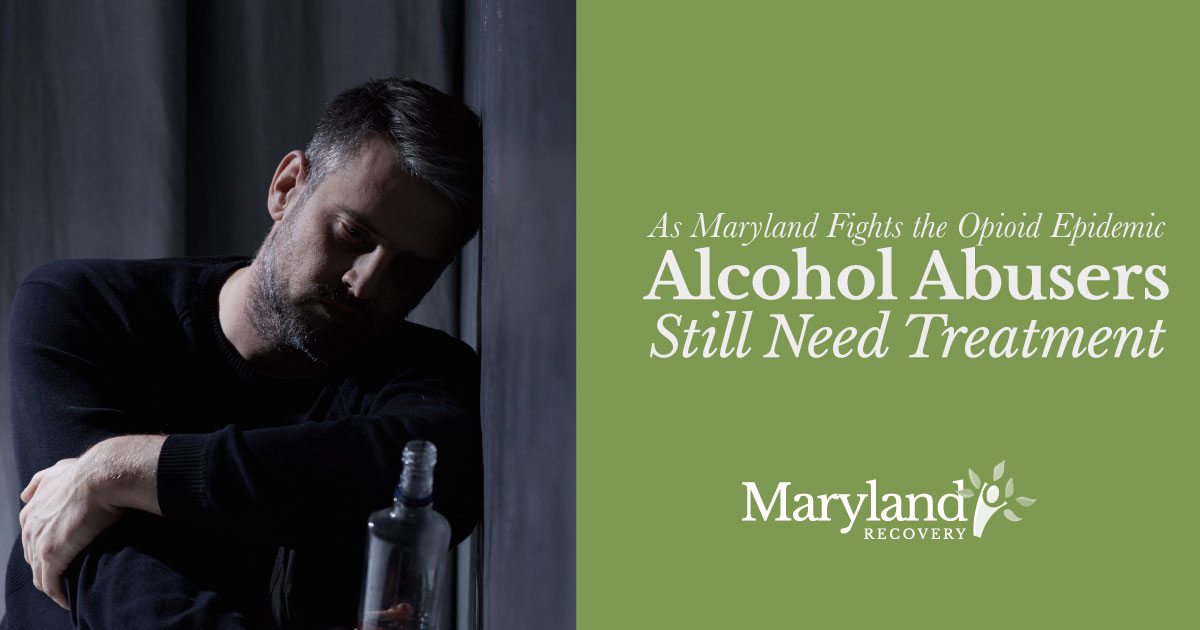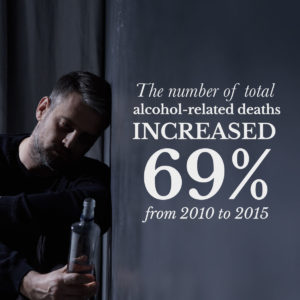 Maryland is widely known today for its struggles with opioids. Baltimore earned its reputation as the nation’s “heroin capital,” and estimates project that up to 1 in 10 city residents struggle with the addiction. The epidemic reaches into suburbs and rural areas, too. In an increasing fight against the dangerous and destructive nature of heroin and prescription opioids, we (the state and Maryland Recovery) never want to downplay the need for ongoing alcohol-related treatment and support.
Maryland is widely known today for its struggles with opioids. Baltimore earned its reputation as the nation’s “heroin capital,” and estimates project that up to 1 in 10 city residents struggle with the addiction. The epidemic reaches into suburbs and rural areas, too. In an increasing fight against the dangerous and destructive nature of heroin and prescription opioids, we (the state and Maryland Recovery) never want to downplay the need for ongoing alcohol-related treatment and support.
If you or a loved one struggles with any substance, Maryland Recovery puts total recovery and safety of our guests at the forefront. The long-term effects of alcohol abuse on the body can rival the effects of opioids, and many patients struggle with multi-substance abuse problems.
Alcohol Abuse Remains Problematic in Maryland
After a few drinks, the depressant creates a similar effect as the release of Oxytocin (the love hormone) in the brain. Alcohol impacts different areas of the brain, but it produces the same feel-good sensations including lowered inhibitions and decreased feelings of anxiety.
Like all drugs, this initial impact feels very rewarding. People are conditioned to associate feeling better with drinking and may drink more and more to sustain the effect. The addiction often starts as a psychological desire and then moves into a physical need.
The Alarming Statistics for Binge Drinking in Maryland
In Maryland, underage binge drinking remains a problem and more older-aged adults are experiencing alcohol related deaths than ever before. A state survey from 2015 indicates 89,000 of the 660,000 residents aged 12-20 admitted to binge drinking in the month prior to the survey.
The number of total alcohol-related deaths increased 69% from 2010 to 2015, and the highest rates of deaths occur in older men. Roughly 58% of all alcohol-related deaths in Maryland also include a co-occurring problem with heroin, and 21% include a co-occurring problem with a drug more powerful than heroin – Fentanyl.
Co-Occurring Substance Abuse in Maryland
In light of the statistics, all rehabilitation professionals, struggling families, and individuals must recognize the dangers of standalone alcohol abuse and of alcohol abuse combined with other drug use. Every drug, including alcohol and opioids, breaks down in the liver. Binge drinking and heavy alcohol use alone can lead to liver complications after a matter of years. Combined with additional drug use, the risk of cirrhosis and liver disease increases. A compromised liver reduces the body’s ability to excrete toxins and absorb much-needed nutrients.
A compromised liver reduces the body’s ability to excrete toxins and absorb much-needed nutrients.
While many substance abuse sufferers do not think about the future as they engage in abusive behaviors, many recovered addiction sufferers sorely regret the damage caused. Liver and other organ damage are just some of the many negative effects of long-term drinking; mental health and cognitive functions may also be affected by long-term alcohol abuse. Those who drink alcohol and consume prescription opioids, illicit opioid medications or heroin may accidentally consume a deadly amount of drugs, fall asleep, and never wake up.
Many people who struggle with co-occurring addictions and abusive behaviors require medical support during the detoxification process. After a detox or residential treatment, they require psychological therapy, withdrawal support, and habit redirection activities. Maryland Recovery specializes in the long-term journey for single substance and co-occurring substance abuse treatment. Understanding how drugs impact the mind and brain function and dealing with both sides of the addiction can help recovering addicts sort out the root problems of their substance abuse issues and achieve a healthier self in recovery.
Alcohol Abuse Dangers
Single substance abuse problems are just as serious and worthy of support as co-occurring addictions. Alcoholism can wreak havoc on someone’s life. It tears apart marriages, erases job security, and causes considerable health complications throughout the body. The mental and physical struggle of withdrawal is real and difficult to overcome. Most people struggling with addiction can’t simply decide to stop drinking.
Addiction creates a physical need in the body, and sufferers experience painful and harmful side effects from cutting back or stopping. One night of downing shots or strong drinks can lead to alcohol poisoning – something that can happen the first or one-hundredth time a person binge drinks.
Alcohol Abuse Treatment in Maryland
Alcohol is still the substance that leads to the most deaths in the United States. While the rate of opioid overdoses and deaths associated with opioids is increasing at an alarming rate, we must realize that the country has seen these dangers for hundreds of years with alcohol abuse and alcoholism. While the trend of increasing deaths associated with opioids and heroin is alarming, we must also realize that nearly 88,000 deaths related to alcohol occur every year. Those suffering from alcohol issues need to seek help to avoid the many risks of alcohol abuse, including death,
Education, outreach, prevention, and rehabilitation play vital roles in the war on substance abuse. Every societal demographic is at risk, and only consistent support for those who want to recover and prevention strategies will turn the current national epidemic around. For more information about single substance and co-occurring substance addiction disorder treatment, contact Maryland Recovery.
Alcohol is Still Considered the Most Dangerous Drug and Those Suffering From Alcohol Abuse and Dependence Need Effective Treatment More Than Ever
LEARN ABOUT OUR APPROACH TO ALCOHOL USE DISORDER TREATMENTS:
Drug and Alcohol Treatment Programs
Reviewed by Christopher Schwartfigure MS, LGPC, CAC-AD








